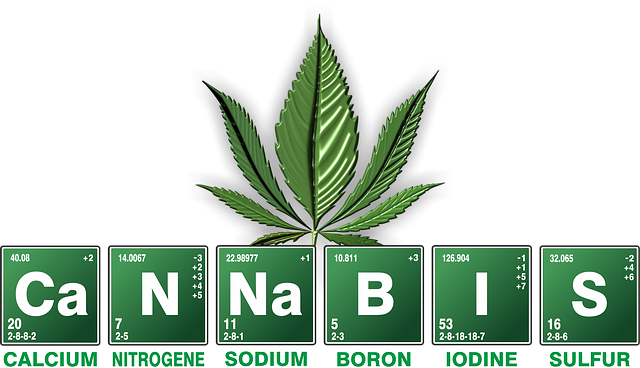2022 saw the enactment of the Medical Marijuana Act in Mississippi, legalizing medical marijuana and bringing attention to THCA, a non-psychoactive compound present in raw cannabis that converts to THC when heated. THCA is gaining recognition for its potential health benefits, including pain management and anti-inflammatory properties. In Mississippi, THCA is now legal within the confines of medical use but remains under federal oversight. Consumers interested in THCA flowers must source them responsibly from reputable vendors who clearly label product details and origins. It's important for users to understand that while THCA is generally considered less potent than THC, it can still cause mild side effects like dry mouth and temporary blood pressure changes. Higher doses may lead to anxiety or paranoia, and reactions can vary based on individual body chemistry and tolerance. For those new to THCA, a cautious approach is advised, starting with small amounts to assess individual responses. As the legal landscape evolves, staying informed about state regulations and consulting healthcare providers is crucial for those exploring THCA's potential medical benefits in Mississippi.
Exploring the emergence of THCA flower within the legal framework of Mississippi, this article sheds light on its implications and the nuances surrounding its use. Delve into the potential side effects associated with THCA flower consumption, essential for informed decision-making by Mississippi residents. Understanding the distinctions between legal status and practical use, we aim to clarify the complexities surrounding this cannabinoid’s impact on health and society within the state’s evolving landscape.
- THCA Flower Consumption and Its Implications in Mississippi's Legal Landscape
- Navigating THCA Side Effects: What Users in Mississippi Should Know
THCA Flower Consumption and Its Implications in Mississippi's Legal Landscape

THCA, or Tetrahydrocannabinolic Acid, is a non-psychoactive cannabinoid found in raw cannabis plants, which, when heated, converts into the well-known psychoactive compound THC. As of recent legislation changes, the status of THCA has become a point of interest within Mississippi’s legal framework. In 2022, Mississippi legislature passed the Medical Marijuana Act, legalizing cannabis for medical use under specific conditions. This act has opened a new chapter in the state’s relationship with cannabis and its derivatives, including THCA. Consumers in Mississippi are increasingly exploring the potential benefits of THCA flower, a raw form of cannabis that contains the acidic form of THC. Unlike its psychoactive counterpart, THCA is not intoxicating, which has led to its use in various wellness regimens, including those aimed at reducing inflammation and managing pain without the high associated with THC.
Navigating the legal implications of THCA flower consumption in Mississippi requires a clear understanding of both state and federal laws. While the 2018 Farm Bill legally distinguished between hemp-derived products containing less than 0.3% THC and marijuana, which remains federally illegal, state laws can vary. In Mississippi, possession and use of cannabis are restricted to those with a qualifying medical condition and a recommendation from a licensed healthcare provider. The legal landscape is evolving, and consumers must stay informed about the regulations governing THCA flower consumption, including the permissible forms and concentrations of cannabinoids. It is crucial for individuals interested in THCA flower to adhere strictly to the state’s guidelines to avoid legal complications. As the legal environment continues to adapt to these new substances, consumers and healthcare providers alike must remain vigilant about compliance and the changing nature of Mississippi’s legal landscape regarding cannabinoids like THCA.
Navigating THCA Side Effects: What Users in Mississippi Should Know

Users in Mississippi considering the use of THCA flowers should be well-informed about its potential side effects, as the legality of THCA products can vary within the state. As of the knowledge cutoff date, THCA, or Tetrahydrocannabinolic Acid, which is the raw form of THC found in cannabis plants, has been legalized for medical use but remains a controlled substance under federal law. It’s crucial for users to obtain THCA flowers from reputable sources that clearly label their products’ contents and origins. The side effects associated with THCA, while generally milder than those of its decarboxylated form THC, can still be notable for some individuals. Common side effects may include dry mouth, red eyes, and a temporary decrease in blood pressure, which can lead to feelings of lightheadedness. Additionally, users might experience anxiety or paranoia, particularly at higher doses. These side effects are usually short-lived and can be mitigated by adjusting dosage and ensuring proper hydration and rest. Users should also be aware that individual sensitivities to THCA can vary, and reactions may differ based on factors such as body chemistry and tolerance levels. It’s advisable for first-time users to start with a low dose and proceed cautiously, monitoring their responses before increasing consumption. Understanding the legal status of THCA in Mississippi is essential for users navigating the potential benefits and side effects of this cannabinoid. Always consult with healthcare professionals for personalized guidance and adhere to state regulations regarding its use.
In conclusion, the emerging landscape of THCA flower legality in Mississippi presents a dynamic shift for users seeking its potential benefits. As outlined in our discussion, understanding the nuances of local laws is crucial for responsible use within the state’s evolving legal framework. It is imperative to approach the consumption of THCA flower with awareness of its side effects, as detailed in our exploration of user experiences and scientific research. Users are encouraged to exercise caution and consult healthcare professionals when considering incorporating THCA flower into their wellness routine. The implications for public health and policy in Mississippi will continue to evolve with ongoing research and legislative changes. Stay informed to navigate this changing terrain responsibly.
